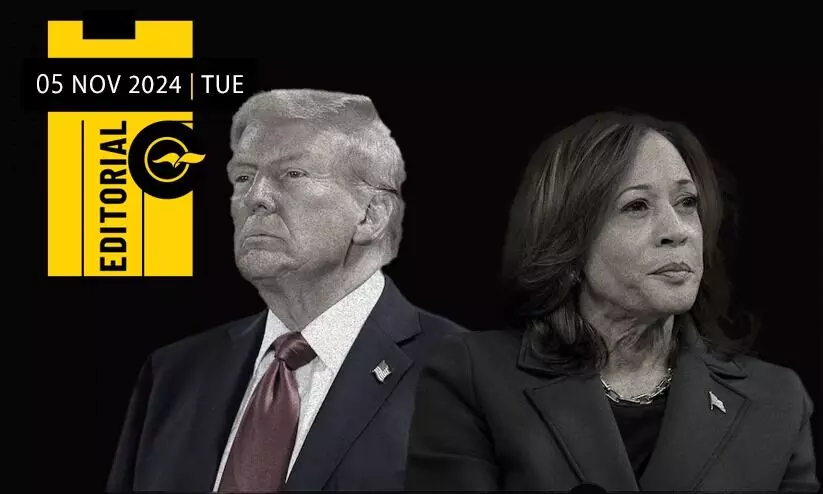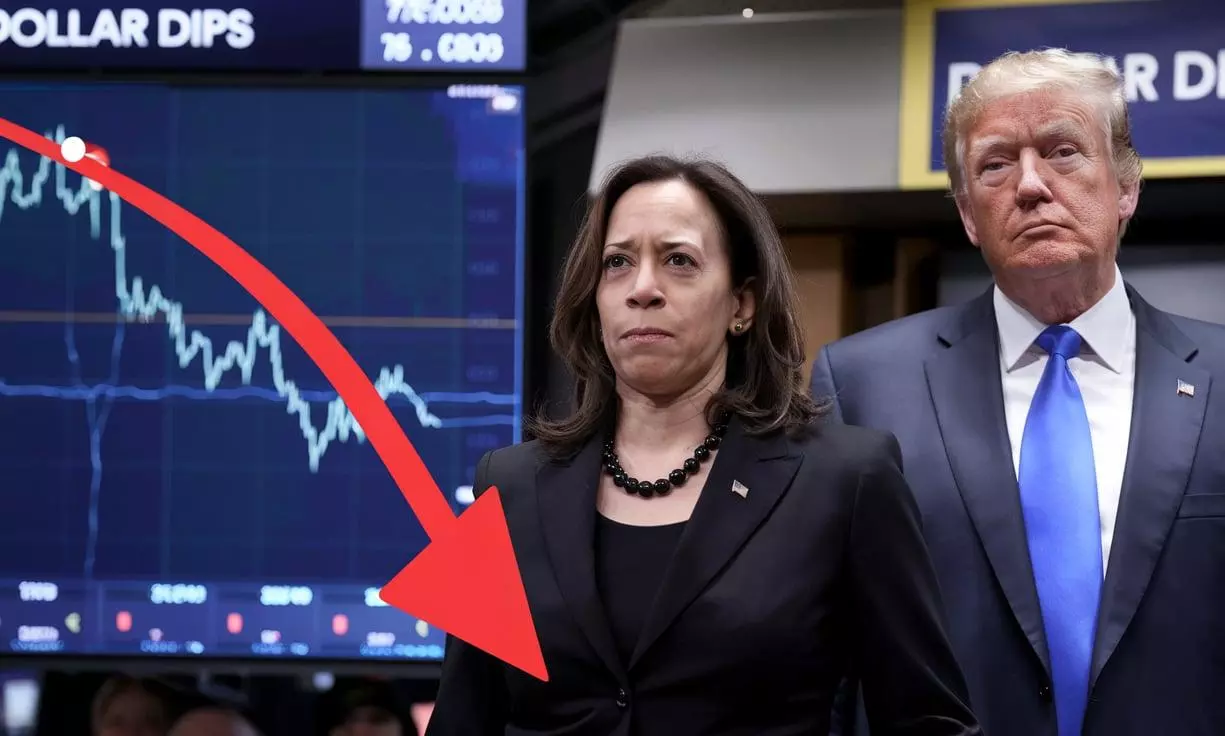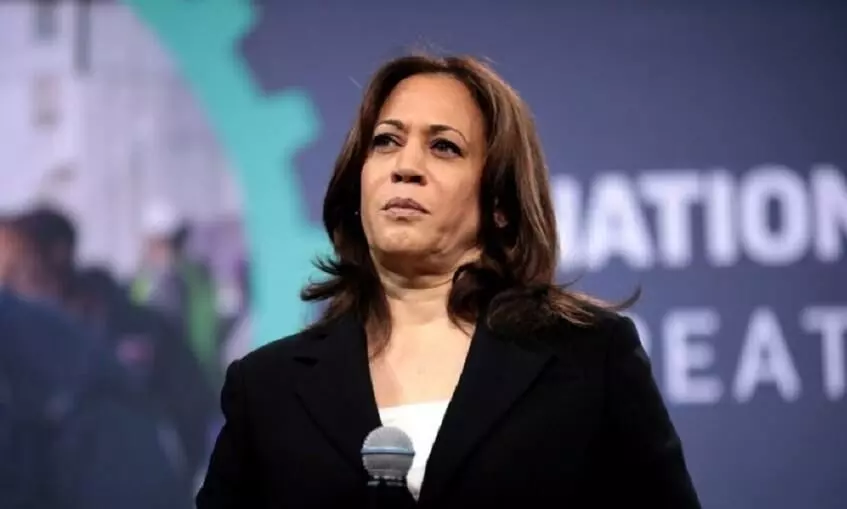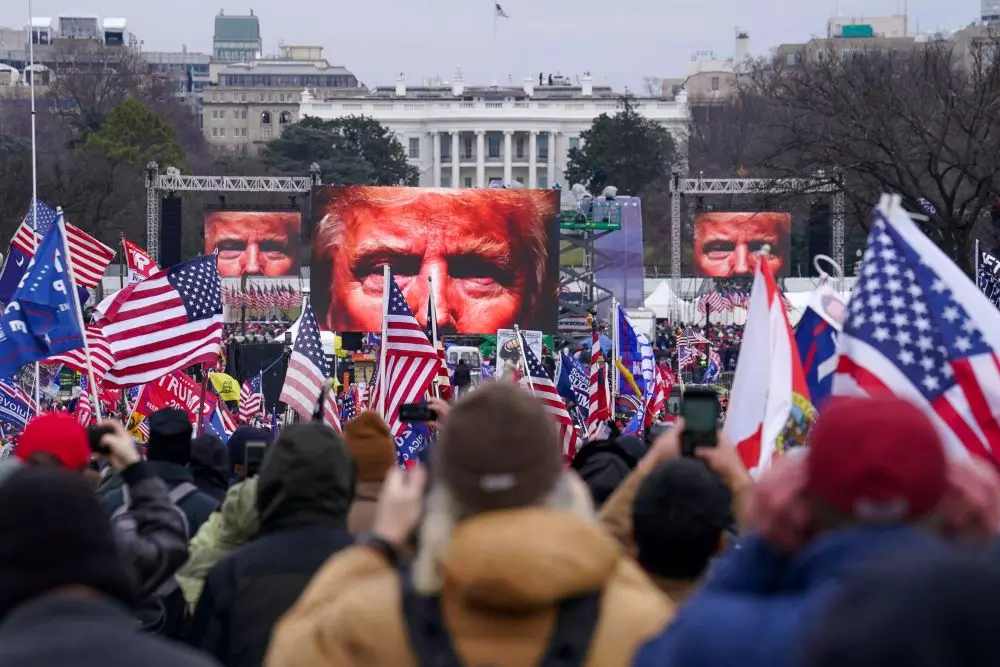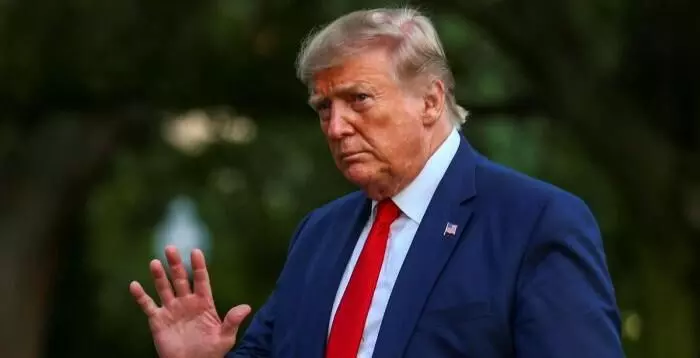
Kamala or Trump?
text_fieldsWill Indian-origin Democratic Party candidate Kamala Harris be the 47th President of the United States? Or, will the US electorate give Republican Donald Trump a second term? More than eight crore voters have already answered this question using the 'early vote' option without waiting for Tuesday, the polling day. It is expected that at least 70 per cent of the remaining 90 million voters will go to the polling station today in the US presidential election, which is equally crucial for the future politics of the country and the world. Analyzing the history of previous elections, an approximate picture of the election results will emerge within 12 hours of the completion of voting. Accordingly, the question of who will be the 60th President of the United States should be answered by Wednesday night. However, the final result may take days or even weeks. So much so, the election arena in the United States is full of anxiety and suspense. The two candidates are literally fighting toe to toe. With seven of the 50 states likely to swing in either direction, the result can change at any moment. Therefore, if there is a dispute after the counting of votes, political observers see the possibility of not only recounting but also entering into legal proceedings that lead to uncertainty in the election process. It is the 54th election in 2000 that comes to mind in this context. In the race between George W Bush and Al Gore, the results came in on the 36th day after voting; that too only when the Supreme Court intervened. If the dispute then was over the state of Florida, then a similar situation exists this time in more than five states.
If the latest media poll results are anything to go by, Kamala Harris has a slight edge in the final stages of the campaign. Kamala also has a thin majority in Iowa, where Trump was expected to win. According to reports, Kamala will also get the support of women voters, unlike in the past. At that level, it can be said that Kamala has a very slim chance of winning. Even then, their people’s mandate rating hovers around 50 per cent. Therefore, the two candidates are focused on the states with the greatest potential for swings: Pennsylvania, Wisconsin, Michigan, Nevada, Georgia, North Carolina and Arizona. It is also noteworthy that the slogans of populism are being heard from both the leaders in the last moments. In recent days, Trump's statements aimed at Indian voters have already become a topic of discussion. Lamenting that the Hindu minorities of Bangladesh are being brutally attacked, he did not forget to blame the opposing candidates in this regard. Kamala Harris and Joe Biden both ignore the Hindu community in America, he complained. It is estimated that there are 52 lakh Indians in America. Half of them have the right to vote. Most of them belong to the Hindu community. It is clear that these statements are aimed at these voters and the more than seven lakh minority votes from Bangladesh and Pakistan.
Kamala Harris, on the other hand, hasn't done too badly. Kamala's promise at a campaign event in Michigan on Monday was to end the attacks on Gaza if she came to power. Michigan, which has 2,50,000 Muslim voters, gave Joe Biden a victory by a narrow margin in 2020. But the anger toward Biden, who has turned a blind eye to the Gaza issue and lavished Israel with weapons, has already been reflected in many ways in Michigan. To avoid this dissatisfaction, Gaza became the main topic during the last-minute run for Kamala. It should be remembered that minorities in Bangladesh, Palestinians and civil strife in Sudan are all coming up as election issues along with active debates in American domestic politics such as inflation, taxation, abortion, immigration, gun laws, health care law and so on. It is because of this that the world looks at these spectacles with curiosity and eagerness as the election of a country and as the fate of global politics is determined.
The US presidential election is also becoming so important as the decisive force that controls global geopolitics. This year's elections have some peculiar situations. This is the first election to be held ever since the fall of the Soviet Union with the rise of the new nation-states of the 'Global South' centred in the East. Some see the BRICS summit, which concluded two weeks ago, as literally such a start. This change can be seen reflected in the election campaigns in the US. Take the Ukraine-Russia war. According to America's stated policy, this is the time to stand with Ukraine. However, Trump has openly sided with Russia. Kamala Harris is also talking in a softened tone. The situation is similar in the case of Gaza; as usual, Trump has declared his support for Israel.
At the same time, Kamala is not even able to rise to Barack Obama's stand on the issue. She is not able to put forward a practical position on the matter other than to say 'end the war' when the current Democratic administration willingly supports Israel. There is no big difference either in the stance of both parties on the issue of immigrants. One thing is clear: No matter who wins, there is no chance for significant changes in America’s policy. The status quo will continue in Gaza and Ukraine. Even so, let's hope the extremists don't steal control of the government.
















